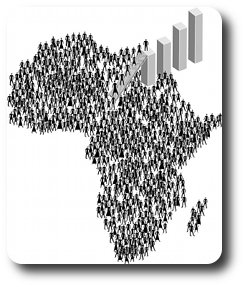Saturday 31 October, 12.15pm until 1.15pm, Lecture Theatre 2 Lunchtime Debates
 Developing countries account for four-fifths of the world’s population, but economist Paul Collier suggests ‘development has failed’ in many areas, and one billion people ‘are living and dying in fourteenth century conditions’. So what should be done? The Millennium Development Goals set ‘basic’ targets to be achieved by 2015. Even though development assistance rose to record levels in 2008, donors are falling short by $35 billion per year. But is aid the way forward? Can we avoid those least able to provide for themselves becoming aid dependent; or does that matter if the result is saving lives?
Developing countries account for four-fifths of the world’s population, but economist Paul Collier suggests ‘development has failed’ in many areas, and one billion people ‘are living and dying in fourteenth century conditions’. So what should be done? The Millennium Development Goals set ‘basic’ targets to be achieved by 2015. Even though development assistance rose to record levels in 2008, donors are falling short by $35 billion per year. But is aid the way forward? Can we avoid those least able to provide for themselves becoming aid dependent; or does that matter if the result is saving lives?
There is further controversy about the very desirability of economic growth on the traditional model. Disillusion in the crisis-ridden West has led to the exporting of doubts about growth to countries as diverse as South Africa and China. Take the impact of climate change debates in the West on attitudes to development. The Green New Deal advocates paying indigenous people not to develop in the traditional way, and to become stewards of the environment. Geoffrey Lean, the Independent’s environment editor, suggests developing countries invest in ‘preserving forests, peatlands and soils, which naturally absorb carbon dioxide, (rather) than destroying them and then developing expensive technology to do the job’.
Should the poorest nations be encouraged to adopt a Western model of development, or are there culturally and environmentally divergent paths they should take? Should these nations be ‘mentored and managed’ in the path of development, as Professor Gerard DeGroot suggests, or should they find their own way forward? Indeed, in the course of developing, is the West a hindrance or a help?
Listen to the session audio…
Other formats are available here
 | Humphrey Hawksley BBC World Affairs correspondent; author, Democracy Kills: what's so good about having the vote? |
 | Alan Shipman lecturer, department of economics, Open University; former editor, Finance Week; author, The Globalization Myth |
 | Ruth Tanner director, campaigns and policy, War on Want |
| Chair: | |

|
Kirk Leech
interim director, European Animal Research Campaign Centre; government affairs, Association of the British Pharmaceutical Industry |
“Microcredit is not a transformational panacea that is going to lift people out of poverty,” said Dean Karlan, a Yale economics professor who studied the phenomenon in the Philippines. “There might be little pockets of people who are made better off, but the average effect is weak, if not non-existent.”
Tony Allen-Mills, Sunday Times, 4 October 2009If you want to maximise happiness (a utilitarian argument which offends the rights-based people, I know, but not a bad start) AND prevent catastrophic global warming, you need to make sure that incomes rise in the poor countries, but are steady or falling in the rich ones. i.e. we need to ration growth – it’s just too precious (and dirty) to waste on the rich countries.
Duncan Green, Oxfam BlogsFrom Poverty to Power, 30 September 2009World Development Report 2010: Development and Climate Change
World Bank, 15 September 2009The UK Government, like many governments around the world, has had a sort of unfailing allegiance to the idea that we must keep the economy growing at all costs, and it’s time to question that goal.
Victor Anderson interviews Professor Tim Jackson, Sustainable Development Commission, 30 March 2009 The politics of development
The politics of development
Far from being the exclusive terrain of experts, the issue of economic growth is one to be considered by society as a whole.
Stuart Simpson, Culture Wars, 21 August 2008 Selling out the ‘bottom billion’
Selling out the ‘bottom billion’
Paul Collier’s book makes astute points about the predicament of the world’s poorest people. But his proposed solutions would likely make their lives even worse.
Daniel Ben-Ami, Selling out the ‘bottom billion’, 27 July 2007 Development should mean more than survival
Development should mean more than survival
'Sustainable development' leaves the poor vulnerable to natural disasters.
Daniel Ben-Ami, spiked, 17 January 2005Gives critical insights into the massive human and economic costs of inequality and poverty and proposes realistic solutions.
Oxfam International"The Battle of Ideas is adrenaline for the mind. A chance for intellectual fisticuffs with some of the best-known and most stimulating thinkers in the world."
Colin Blakemore, professor of neuroscience, Oxford University